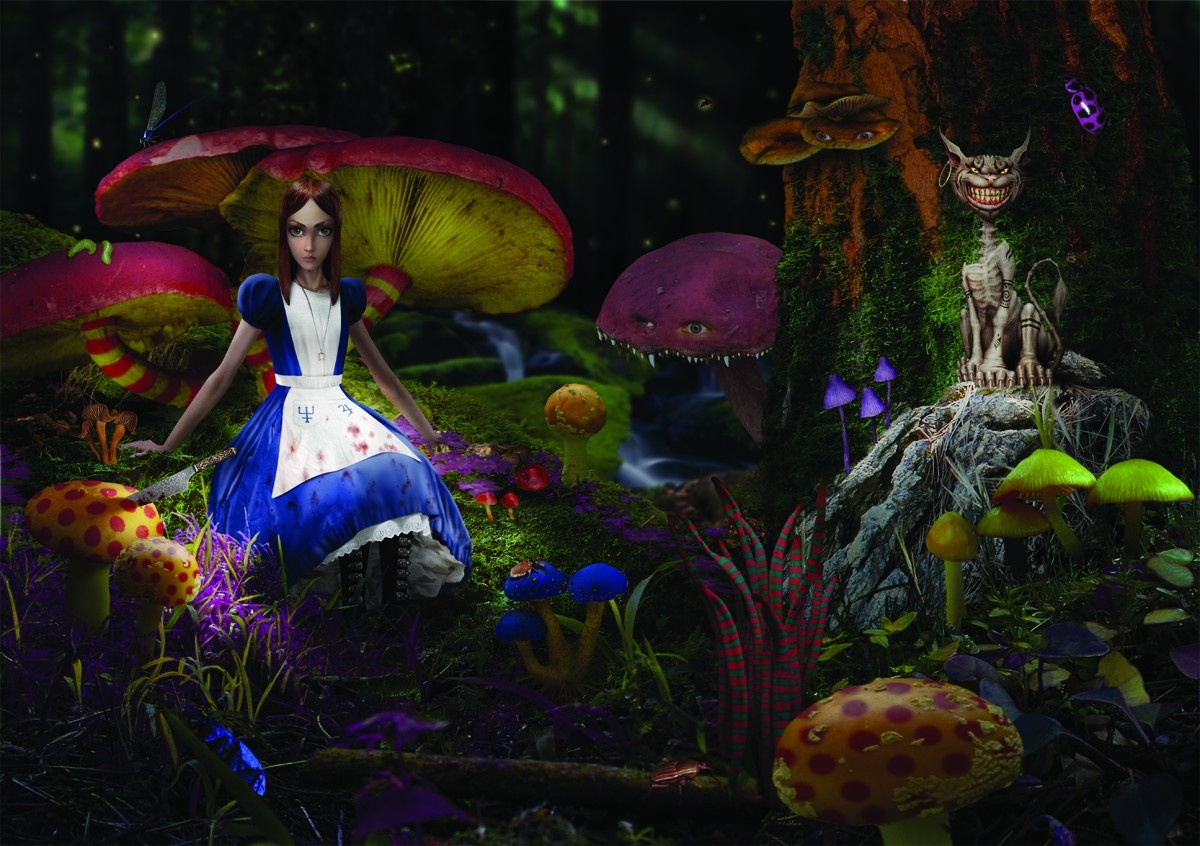Sound Byte: Meet the Composer - Alice: Madness Returns
We have an exclusive track from the soundtrack and an interview with the composer, Jason Tai.
 Electronic Arts announced that a digital soundtrack will be released for Alice: Madness Returns if you preorder from Amazon.com or GameStop, and it will feature a new track from Chris Vrenna, the composer from the first game and formerly of Nine Inch Nails. Taking the reins this time around, composer and sound designer Jason Tai talked to us in an e-mail Q&A about his work on the dark music of Alice, the unique sounds of Wonderland, and how it all ties together. We also have an exclusive track from the album to share with you below so check it out and let us know what you think!
Electronic Arts announced that a digital soundtrack will be released for Alice: Madness Returns if you preorder from Amazon.com or GameStop, and it will feature a new track from Chris Vrenna, the composer from the first game and formerly of Nine Inch Nails. Taking the reins this time around, composer and sound designer Jason Tai talked to us in an e-mail Q&A about his work on the dark music of Alice, the unique sounds of Wonderland, and how it all ties together. We also have an exclusive track from the album to share with you below so check it out and let us know what you think!
GameSpot: Could you begin by telling us a bit about yourself and your musical background?
Jason Tai: I grew up in Kuala Lumpur and learned to play the organ at an early age. In 1996, I got into computer music and was really interested in producing electronic music. After graduating university, I started making music full time.
GS: What was the first instrument you picked up?
JT: Organ.
GS: Is there an instrument you wished you knew how to play?
JT: Upright bass and piano.
GS: What is your fondest memory when it comes to music?
JT: When I bought my first synth and produced my first original track circa 1998.
GS: How did you get into making music/sound design for video games?
JT: I grew up listening to music and playing video games. In 2000, I got a job as the in-house musician for a game developer in Kuala Lumpur and shipped multiple Game Boy titles.
GS: What can you tell us about the score and the style in Alice: Madness Returns? How is it similar or different from the first score?
JT: The music in London is mainly strings based, and we kept it simple with tracks based off the main theme….a dark and dreary London. For Wonderland, it was more flexible. Dark, mysterious, quirky at parts, and surreal. Each chapter has its own theme and set of instruments, but we stayed away from anything that sounded too electronic. There are probably some similarities to the first score, but we wanted the score for AMR to have a different "character" and instrumentation.
GS: Like the first game, the art direction in the game is stunning. How do you approach the music when you are given visuals like that to work with?
JT: Just by looking at artwork or cinematics, I can form a basic structure and flow of the track in my head. Visuals speak to me musically (especially on AMR), and I usually experiment with different instruments and sounds until I get it sounding the way I want it to.
GS: What were your biggest challenges on the score?
JT: Creating unique tracks for different themes in the game and keeping pace with changes in the game design.
GS: How do you approach individual tracks?
JT: I usually start with an ambient bed to set the mood of the track. Then, experiment with melody ideas. Finally, work out the arrangement.
GS: How do you integrate the score into the game? How does it tie in with the sound design?
JT: From the beginning, I've always looked at the sound of AMR as a whole; not separated into music/SFX/dialogue. I think that approach helped the audio team craft the "sound" of the game, and every component sits nicely with one another. Being an in-house team, we had the opportunity to play daily builds of the game with all our sound content integrated, and that helped immensely.
GS: What are some of the strangest techniques that you've had to use to get the sound that you want?
JT: Roland, our sound designer, did a lot of Foley recordings for AMR. One of the more memorable ones involved a toilet and a plunger. I believe it was used as a jump pad.
GS: What are your biggest influences?
JT: Probably 80's and 90's music as I grew up listening to those.
GS: What other artists in the game music industry do you admire and why?
JT: Garry Schyman's BioShock score; Clint Mansell and John Murphy. They have a unique style and are very talented composers. I enjoy listening to their work in games/films or on its own.
GS: Any advice for aspiring musicians/sound designers?
JT: Really want it and persevere.
GS: Thank you for your time.
Sound Byte is GameSpot's game music blog, which covers every aspect of music and audio in games, including interviews with top game music composers and sound designers and discussions of new or classic game soundtracks. Have a question or suggestion? Leave us a comment below or e-mail us at soundbyte@gamespot.com. For a list of previous Sound Byte features, click here. Follow us on Twitter! @gs_soundbyte
Got a news tip or want to contact us directly? Email news@gamespot.com

Join the conversation